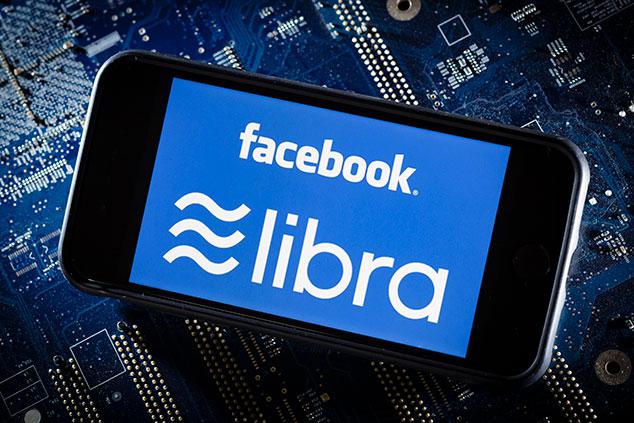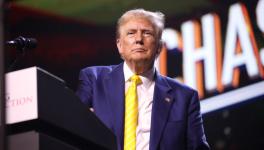Facebook’s Funny Money – Facebucks – and Real Money

Image Courtesy: Money Week
Is Facebook’s money – Libra or Facebucks – some funny money, or a threat to all currencies? Or is it just a giant scam to transfer people’s cash into Facebook?
Facebook’s proposed currency Libra – or as a wag put it, Facebucks – has created a storm. Libertarians see Libra, a variant of a cryptocurrency backed by Facebook’s big bucks and the bevy of companies that it has put together, bringing the day when cryptocurrencies will truly challenge all global currencies. and fulfilling Hayek’s dream of The Denationalization of Money. Or perhaps, as a Hackernoon’s article by Elsner puts it, Facebook has Found a place to Park its $40bn+ Cash Reserves and Everyone Thinks its about Crypto – a clever way of taking in free cash without paying interest, and parking it wherever it wants.
Buried in the Libra White Paper are a couple of sentences that say Libra will also enable a global digital identity for people (read a global Aadhaar). All this from Facebook, which is under fire for mass scale violations of privacy. From a platform that literally extorts its users for visibility, the “real” currency of the narcissistic digital age: If you want your posts to be seen, pay us.
It is not my intention to have a close-up look at Libra. Instead, I am going to focus on what money is, not in theory, but in practice. Money is what we use for transactions; it is what we put in a bank – or under the mattress – if we want to store it. Simply put, it is both a means of exchange or a store of value. It gets its legitimacy as either of the two. The state backs it; the guarantee is on every note from the central bank of the state. All other forms of “money”, for example that used by Ali Baba -Ali Pay, or PayTM, derive their value from the central currency, and are held in what can be called the “digital wallets” that we keep with these companies.
Also read: Facebook Plans Own Globe-Spanning Currency for 2 Billion-Plus Users
Most people see these wallets as temporary storage for real cash that can be used to make mobile payments. In China, most people use We Chat or Ali Pay for payments, even small ones. Both cash transactions and use of credit card payments are reducing in China, something that may also happen in different parts of the world.
Facebook’s Libra attempts two things simultaneously. It challenges all global currencies as it will be possible for payments to take place within Facebook’s ecosystem without the use of any specific currency. It is a currency backed by a private company, not a government. So it is completely outside all currency controls of governments. Of course, Facebook is using cryptocurrency as a substitute for the sovereign guarantee that every state extends for its currency. But let us be clear that the credibility of Libra or Facebucks lies in its being backed by Facebook, not its crypto algorithm.
Of course, the real world is not that simple. Yes, no country will be able to regulate Facebook’s money. Except the US. Let us not forget that Facebook is a US company functioning under US Law. It is bound by the same laws that apply to US banks. Remember when US sanctions were imposed on Iran, and all its money lying in US banks – and even outside the US – were seized by the US? In fact, the return of this money is one part of the Iran-US Joint Comprehensive Plan of Action (JCPOA) deal, a part Trump has reneged on. So let’s not fool ourselves; Facebook’s money will not be under the legal control of any government except the US.
The second part is with 2.27 billion users. Even if a small number of them “buy” Facebucks to put in their digital Libra wallet, Facebook will sit on a huge amount of liquid cash. It can add a very large amount of money to its $40 billion in cash reserves through this route. Facebook does not keep its reserve in its vaults in its headquarters in Menlo Park, California. Or in the bank earning some measly interest. Or in research. It uses this huge pile of cash as a giant hedge and investment fund. What the Facebookers will be doing, by buying Libra, is increasing this pile of liquid money for Facebook. We buy some funny money to play with in Facebook’s fairground; and Zuckerberg gets real cash to play with in the real world.
Facebook has claimed that its Facebucks will allow the excluded to enter the financial system; they are introducing their version of money to help the poor, not line Facebook’s pockets. Most people are aware of the true “altruism” of Facebook: it has become one of the richest companies in the world, and Mark Zuckerberg is one of its richest citizens. In India, we are already familiar with the Facebook rhetoric of “helping the excluded” during their Free Basics campaign. It is unlikely to cut any ice here. But it can still have some traction in countries that believe that Facebook is the internet. Or among people who use the internet largely for Facebooking.
Also read: Global Capital, Digital Monopolies and New Forms of Enclosure
So the key questions are: Is Facebook introducing the first money in the world that is not backed by a sovereign or a sovereign state? Or is it a giant scam to launch a bank unfettered by any regulation? Or currency controls? Can states that allow Facebook to do so still control the money side of their economy?
For China and the US, the issues are quite simple. In the US, Facebook is under its jurisdiction and will have to obey any regulatory framework that exists in there. For China, again, it is quite simple. There is no Facebook in China. They do not need to control Facebook, and can regulate We Chat and Ali Pay, the two mobile wallets there.
With the exception of North Korea, Iran and Russia, who are already under US sanctions, it’s the rest of the world that has the problem. In these countries, will the regulators ban Facebook’s money? Or will Facebook’s users, a larger number today than the population of any country, be able to force their governments to surrender to Facebook? This is the big battle that is shaping up in the financial world.
Get the latest reports & analysis with people's perspective on Protests, movements & deep analytical videos, discussions of the current affairs in your Telegram app. Subscribe to NewsClick's Telegram channel & get Real-Time updates on stories, as they get published on our website.
























